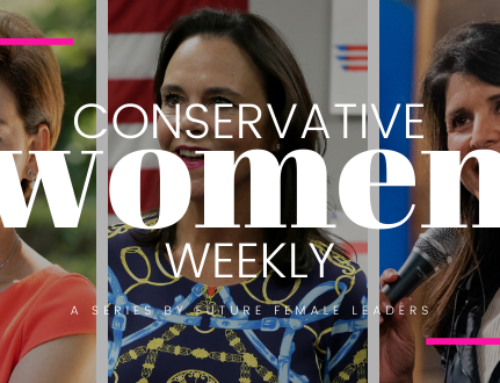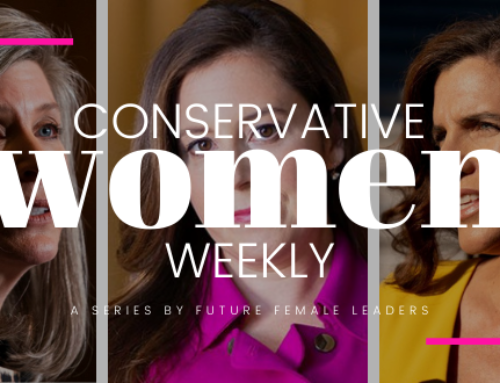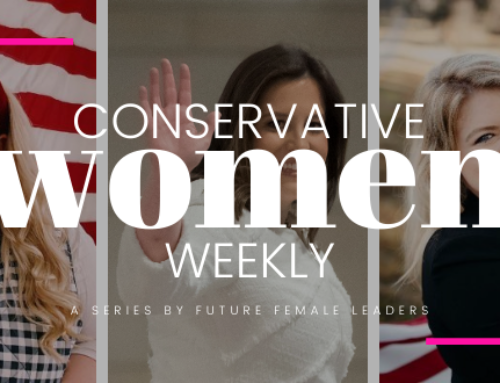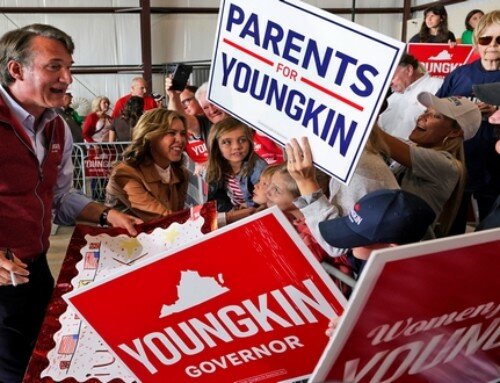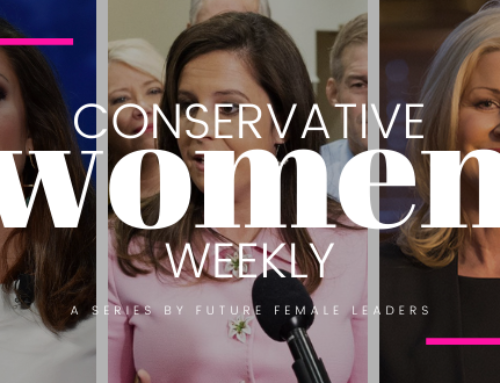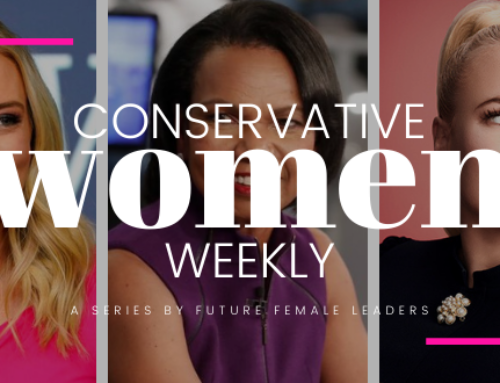How She Got That Internship is a series that highlights conservative women’s internships in various organizations and positions to inspire the next generation of conservative women to lead. Did you, or a young woman that you know, have an internship experience you want to share with our readers? Submit it in this form and we will contact you if we think it would be a great fit for the series.
This was certainly a weird season for internships–with the global pandemic making a lot of internships go virtual. Thinking about the future, girls across the country are dutifully working to prepare for the internships they have landed and thinking ahead to future internships and jobs. FFL is sitting down with a number of interns to reflect on the best internships they’ve had and inspire others to try new things, step outside of their comfort zone, and be the best intern they can be.
Today, we’re talking to Isabel, a junior in college who has held this internship with the Department of Veterans Affairs Digital Media Engagement team since September 2019!
Isabel is a Junior at Framingham State University, majoring in Criminology and minoring in Psychology. She previously attended Wheaton College where she served as the Treasurer of the Conservative Club. Isabel has interned for the Department of Veterans Affairs’ DME Team since September 2019, first as a writing intern and now as a Department Head intern. She is also an Assistant Director of Recruitment, high school mentor, and writing contributor for Lone Conservative.
How did you find out about the internship opportunities at Veterans Affairs and what was the application process like?
The summer before my Sophomore year of college I was looking for potential internships I could do during the academic year. I came across the Virtual Student Federal Service program which pairs interns with a government agency. The internship differs across every agency, for example, some are research-based, some coding, and they even have foreign-language based ones. I applied in July and selected my top three agency programs. I was also required to send a specially-formatted resume and a cover letter. When September came around I actually thought I had been rejected, but then the Department of Veteran Affairs’s Digital Media Engagement Team (which wasn’t one of the agencies I had applied to) reached out, they had read my application and wanted to know if I’d be interested in joining as a writing intern for them!
What was a typical day like there? How did you balance your intern work with school, other activities, etc?
All VSFS interns commit to a 10-hour workweek (although some departments like mine use that as the maximum, not as a requirement), so it’s very manageable to fit in with my classes and homework. Most of the work is self-paced, so it does require good time-management skills, but using a planner regularly to keep track of my to-do list has definitely helped me with that.
As a writing intern, I worked on a few different types of articles that end up being published on their VAntagesite blog. I started out writing Veteran profile articles, called Veteran of the Day. These were short articles that focused on Veterans throughout history. As I gained experience I had the opportunity to work on other projects, including Vet Resources, which was my favorite part during my first year. These were articles that highlighted free resources available to Veterans, ranging from educational benefits to custom home opportunities.
Were there other interns that you worked closely with? How did that impact your work–were you in teams, bullpens, collaborating on projects, etc?
So a unique aspect of my internship is that almost everyone, including leadership positions, is a student intern, not an employee of the VA. Every article has a card on Trello, so I would work with editors and other interns like fact-checkers to make sure my articles were being written correctly. Graphic designers would also collaborate with us. Every week we would also send in a weekly report to our Department Head and other supervisors in the internship. We also had opportunities to work on other projects and cross-train in departments if we were interested; for instance, I did some work for their Transcription department. It was great that we had the chance to work with so many other interns across the DME team.
You stayed on after your initial internship, right? How did that come about? Any tips for someone who wants to make a similar transition?
Yes, so pretty much every intern is invited to stay on for the next school year in their current position, however, last spring the Writing/Editing ELT (which is the supervisory intern above the DHs and interns) actually encouraged me to apply to become a Department Head. I was then selected to be a DH of Special Projects (which is similar to the writing department but focuses on two very specific projects) last May. Over the summer I went through the training and started preparing onboarding information for new interns. My co-DH and I are now responsible for a small group of writing, editing, research, graphic design interns, making sure they complete their projects correctly and offering any help needed. It was such a great opportunity that I was able to stay on since my in-person internship elsewhere was postponed this past summer.
I would say for any intern who wants to advance/stay on to put 100% into all your work and be proactive about looking for more opportunities. I remember a few times last year where if there was not much work available in my department I’d volunteer for extra opportunities that weren’t necessarily part of my regular job duties.
What was the biggest WOW moment of your internship?
I would say the biggest WOW moment likely was when an article I wrote promoting the National Resource Directory reached 25,000 views on their site. I had put a lot of work into researching and writing it, so it was really exciting to see that so many people read it (and hopefully benefit from it!)
What kind of mentorship did you receive during your internship?
Although we don’t have a specific mentorship program, we do have resources to help advance our careers and abilities. There’s a special channel in Slack where we have the opportunity to have our resumes reviewed by other interns (and sometimes staff) and we are encouraged to connect with others in the DME on LinkedIn. There are also opportunities throughout the year to connect with staff or attend training programs that aren’t specifically related to the DME; for instance over the summer I was able to attend a virtual career fair for the intelligence community! The intern program manager also occasionally posts job openings that soon to be graduates may be interested in.
What was the most valuable lesson you learned during your internship?
I would say the most valuable lesson I’ve learned during my time with the DME is that the internship experience is what you make out of it. I think this can really be applied to any job/internship setting. Just by asking, I had the opportunity to do so much more outside of my regular job duties and had the chance to learn about work in other departments. This can also lead to other opportunities, for example my supervisors noticed and encouraged me to apply to the DH position.
What are three tips you would have for someone else doing an internship there?
-
Take advantage of the extra opportunities offered (some projects have been for other areas of the VA, other agencies, and even Congress!)
-
Put 100% into your work, no matter how small the task is
-
If you have any questions just ask your DH’s, they’ll be more than willing to help!
What’s your #1 tip for someone doing a government agency internship?
My #1 tip would be to be proactive and ask for extra work, this can help you find new experiences and interesting projects and may even lead to a promotion! Your supervisors will take note and would likely include this in a recommendation letter, which can be very valuable in your job search after college.
What’s next for you? How did this internship shape your career plans, your academics, or your idea of what you wanted to do after graduation?
I’m hoping to stay with the VA in this role through the next year until I graduate. Afterwards, I’m hoping to go into the criminal justice field, I’m particularly interested in Intelligence Analysis. Although this internship isn’t directly associated with my field, it has been a great opportunity to develop my writing skills, learn how to manage a team, and make a lot of great connections (and of course help Veterans). I definitely want to stay involved with helping those who have served our country, so I may stay on as a volunteer with the DME after graduation.



